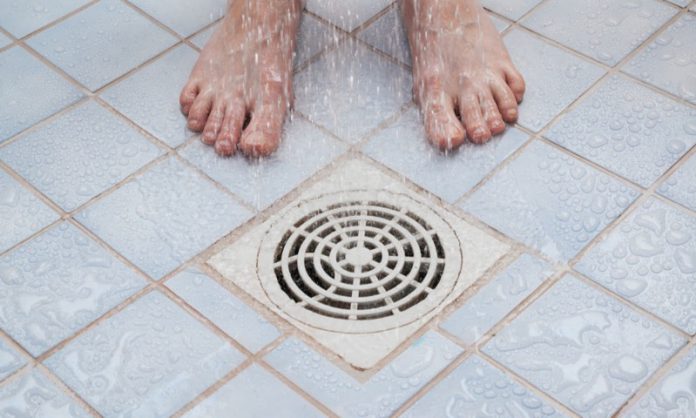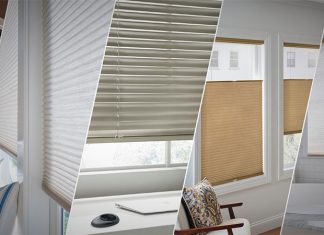Shower times are essential to every individual. Besides washing yourself, bathrooms provide a place to relax, think of creative ideas, meditate, sing, or plan your day. However, a smelly shower drain makes the space less conducive for meditating and singing.
Smelling the odor for the first time will make you want to find its cause almost immediately, and even try to clean the bathroom before your shower time. Some causes of smelly shower drains are clogs, leaking pipes, biofilm build-up, and dry p-traps.
The good news is you can unclog your drains and refill dry p-traps, but some problems, like water pipe replacements, require a professional. An excellent place to start is by hiring J. Blanton Plumbing’s experienced plumbers to unclog your drains and repair leaky pipes. Besides, you can learn more about quick fixes in your bathroom from them.
What causes smelly showers?
Finding why your shower stinks is easy because most odors come from nonfunctional parts. You could notice the smell immediately after entering the bathroom or before showering. Some causes of odors in your shower are the following.
1. Clogged drains
Drain clogs in the shower are not news to most homeowners. Although most people try to keep their bathrooms clean, the accumulation of small things like hair, soap scum, small items, and sand or mineral deposits can cause clogs.
A sign of a clog is when the water stagnates in the shower or drains slowly. When the drains are blocked, dirty water cannot pass through the main sewer line. Accumulation of the dirty water causes odors and could make the space messy and a breeding zone for bacteria.
2. Mold growth
Your bathroom is more likely to grow mold than other rooms. Mold thrives well in wet and cold areas, and the shower provides a conducive environment for this growth. Mold stinks, and the odor does not go away until you clean.
Besides causing odors in the bathroom, mold can discolor walls and spread to other rooms causing aesthetics. Signs of mold growth on your walls are green, brown, or black patches and odors.
3. Biofilm build-up
Besides mold, your bathroom could be smelly due to biofilm build-up. Biofilm is a slimy substance that forms from a build-up of bacteria in the shower. It mostly clings onto river rocks and bird births and can build up in your bathroom.
Biofilm build-up can cause the spread of bacteria leading to infections. It also causes a slippery feel on the floor, especially the areas you step on, and can lead to slides.
4. Leaking pipes
A more severe issue causing shower odors is leaking pipes. They cause sewer gasses in the bathroom to escape, leaving a smell of rotten eggs. Although you can repair biofilm build-up and unclog blocked drainages, you might require a plumber to fix your leaking pipes.
Due to corrosion or loose fitting between piping runs, perforated sewer lines could cause leaks. In addition, hiring incompetent plumbers during construction could lead to poor line installation, causing pipe leaks.
Also, clogged drains can cause the pipes to leak. This happens if the dirt sits in the line, corroding the tube and causing pores. If you suspect the leaks are due to clogs, start by unclogging the drainage.
5. Dry p-trap
A p-trap is a u-shaped pipe installed below the shower drain line to hold water so that it blocks sewer gasses from escaping to the bathroom. You also have p-traps in the kitchen, which are visible under the sink.
When the p-trap is dry, there is no water to block sewer gasses, and they can find their way into the bathroom. This leads to sewage-like odors. The main cause of dry p-traps is failing to use the bathroom for a long time, causing the water to evaporate.
Dry p-traps don’t require a plumber to fix. You can do the fixing by running some water to fill the space. However, if the smell does not disappear, contact a professional plumber to inspect and repair the problem.
How to fix a smelly shower
The first step to fixing a smelly shower is finding the reason for the odors. It could be blocked sewer lines, drains, leaking pipes, biofilm build-up, or mold. Once you identify the main culprit, you can use these tips to fix your bathroom.
1. Unclog the shower drain
The only way to stop a clogged shower drain from causing more odors is by unclogging it. You can use a drain snake to push the blocking substance further away from the drain line to allow dirty water to flow into the sewer line.
Another easy method to unclog drains is by using baking soda and vinegar. Unfortunately, this combination causes a chemical reaction that breaks down the substance causing clogs to make way for dirty water in the sewer line.
2. Clean the dry p-trap
If you suspect your shower p-trap is dirty and dry, clean it before filling it with water again. Use vinegar and baking soda to soften any dirt in the p-trap. Once you pour the solution into the drain, cover it with a stopper and let it sit for 20 minutes for the reaction.
You can also use bleach and other house-cleaning detergents to clean a dirty P-trap. However, ensure you read the chemical contents in these substances because they could cause more harm to your drainage.
3. Clean and prevent mold build-up
Although mold can survive in the bathroom, you can clean and prevent its growth. Leaking ceilings commonly cause mold growth which can extend to other rooms. Check if your roof is leaking and repair it.
4. Fix leaky pipes
Fixing a leaking pipe might not be easy if you don’t have enough experience. Therefore, hiring a professional to fix the problem and install new lines is advisable. When replacing old pipes, ensure you buy better quality.
Final words
Dealing with a smelly bathroom can be challenging, especially if you like taking your sweet time in the shower. However, most problems causing the smelly drains are repairable through DIYs, so you should be able to fix them quickly. Most importantly, replacing pipes and repairing dry p-traps require a professional plumber.













